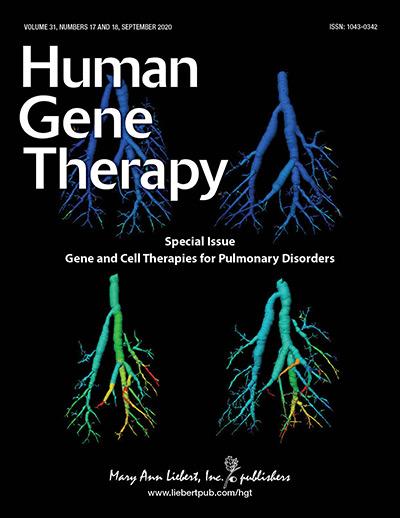
Credit: Mary Ann Liebert, Inc., publishers
New Rochelle, NY, September 18, 2020—Gene therapy was successfully used to overcome the cardiac effects of Freidreich’s ataxia (FA) in a mouse model of the disease, as reported in the peer-reviewed journal Human Gene Therapy. Click here to read the full-text article free online through October 18, 2020.
Researchers at Weill Cornell Medical College created a unique, cardiac-specific mouse model of FA that is similar to early stage human disease. The mice are normal at rest but exhibit stress-induced cardiac symptoms, such as when they exercise on a treadmill.
In the article “Stress-induced Mouse Model of the Cardiac Manifestations of Friedreich’s Ataxia Corrected by AAV-mediated Gene Therapy,” the treated mice received a one-time intravenous dose of adeno-associated virus (AAV) gene therapy to deliver the frataxin gene, which is deficient in FA. These mice exhibited exercise performance on a treadmill that was indistinguishable from their healthy littermates.
“The complexity of single gene disorders often complicates the strategies approached to clinical gene therapy,” according to Editor-in-Chief of Human Gene Therapy Terence R. Flotte, MD, Celia and Isaac Haidak Professor of Medical Education and Dean, Provost, and Executive Deputy Chancellor, University of Massachusetts Medical School. “The demonstration by these authors that FA may require a systemic delivery method to correct both the cardiac and neurologic manifestations of the disease could be of critical importance in future FA gene therapy.”
About the Journal
Human Gene Therapy, the Official Journal of the European Society of Gene and Cell Therapy and eight other international gene therapy societies, was the first peer-reviewed journal in the field and provides all-inclusive access to the critical pillars of human gene therapy: research, methods, and clinical applications. The Journal is led by Editor-in-Chief Terence R. Flotte, MD, Celia and Isaac Haidak Professor of Medical Education and Dean, Provost, and Executive Deputy Chancellor, University of Massachusetts Medical School, and an esteemed international editorial board. Human Gene Therapy is available in print and online. Complete tables of contents and a sample issue are available on the Human Gene Therapy, website.
About the Publisher
Mary Ann Liebert, Inc., publishers is known for establishing authoritative peer-reviewed journals in many promising areas of science and biomedical research. Its biotechnology trade magazine, GEN (Genetic Engineering & Biotechnology News), was the first in its field and is today the industry’s most widely read publication worldwide. A complete list of the firm’s 90 journals, books, and newsmagazines is available on the Mary Ann Liebert, Inc., publishers website.
Media Contact
Kathryn Ryan
[email protected]
Original Source
https:/
Related Journal Article
http://dx.




